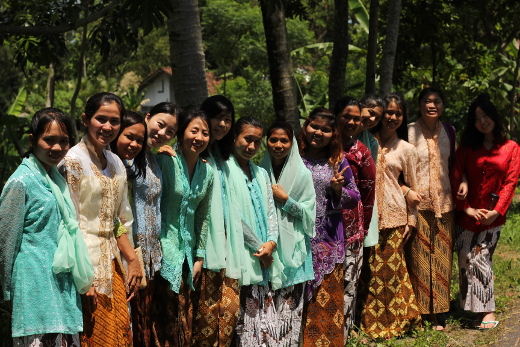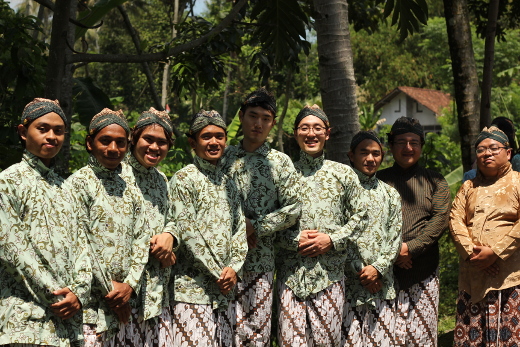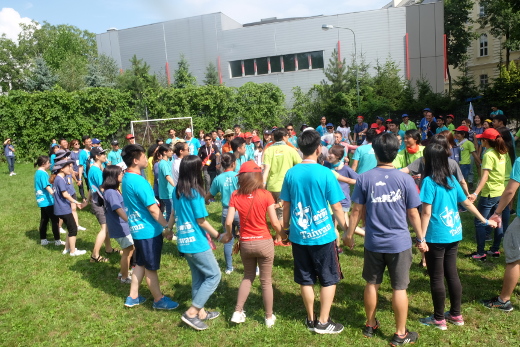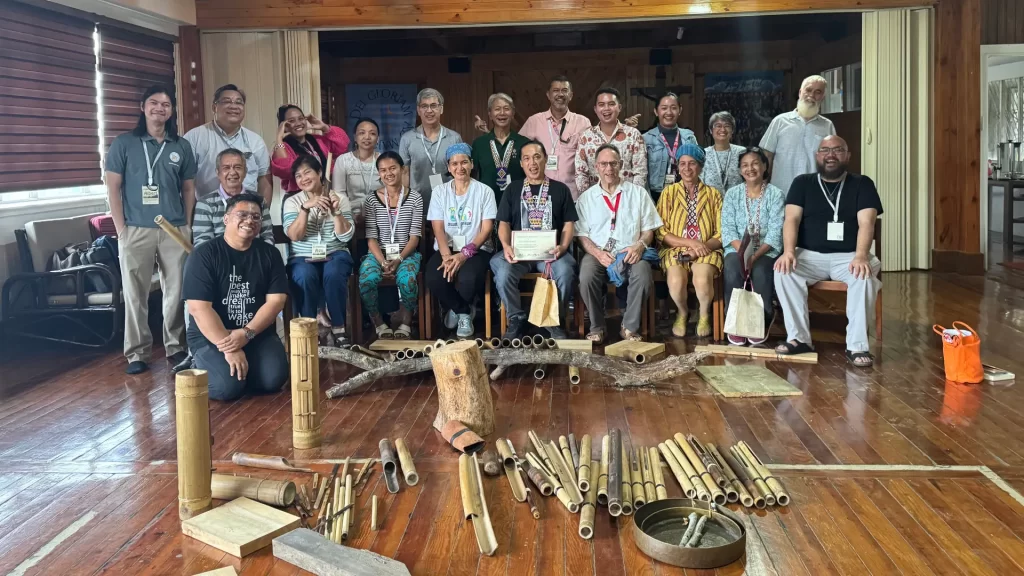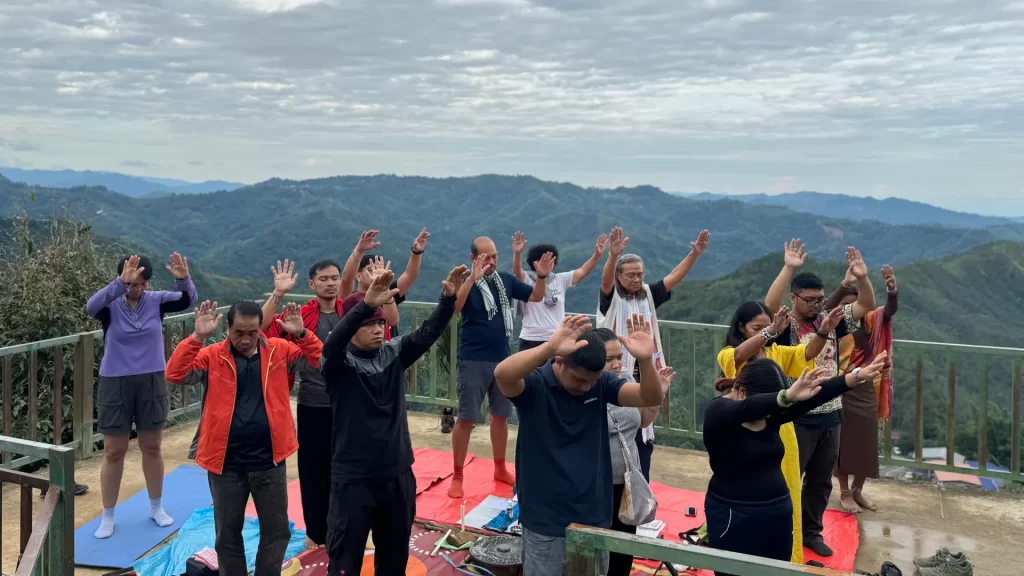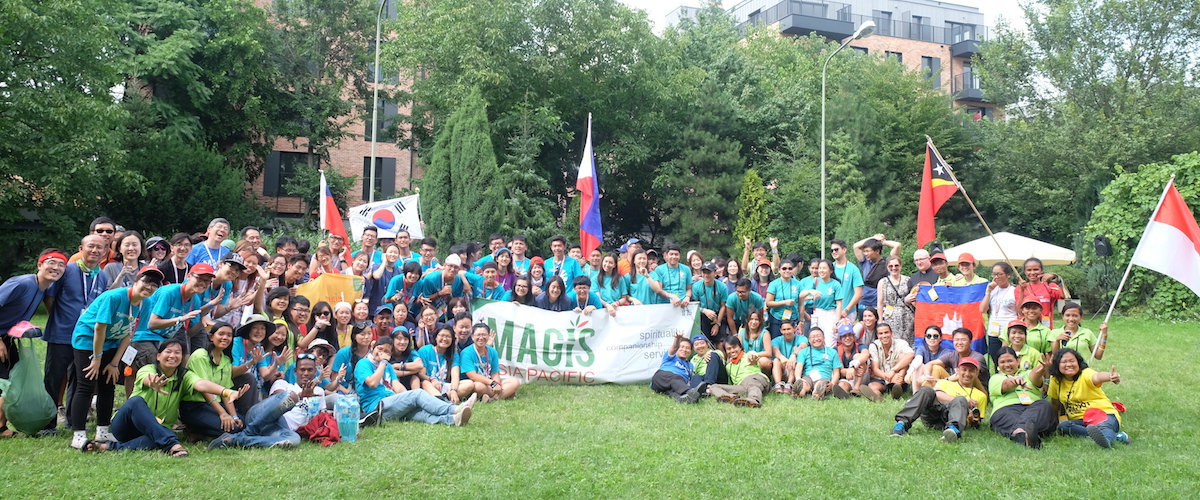
Based on the recommendations of a working group of major superiors, a JCAP Youth Ministry core team was formed. The three members – Fr John Nugroho SJ (Indonesia), Fr Choe Song-yong SJ (Korea) and Teresa Wang (Taiwan) – were tasked with setting up the ministry.
The team presented a five-year plan with the goal of helping young people to become integrated, stronger and confident in discerning God’s will in their lives, and to become future servant-leaders who will care for creation, serve with joy and work collaboratively with others to effect change for the poor and marginalised.
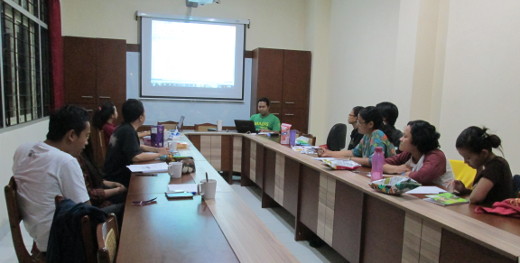
Their proposal was to establish a magis formation programme across the Jesuit Conference to introduce young people to Ignatian Spirituality and train them to set up magis formation programmes in their own countries.
The team went from plan to action quickly. In less than six months they pulled together a Magis Asia Pacific gathering. From December 26, 2015 to January 3, 2016, more than 70 young adults and Jesuit animators from Cambodia, Myanmar, Taiwan, Macau, China, Korea, Thailand and Timor-Leste gathered in Yogyakarta, Indonesia. The programme was patterned on the magis formation programme the Jesuits in Indonesia have been running for youth since 2008.
The participants learned about Ignatian Spirituality and practised the Examen. They were taught how to recruit, manage and accompany their fellow youth in magis formation back home. They were sent on an Ignatian Experiment, choosing between a socio-cultural immersion and a pilgrimage. Those who went on the pilgrimage learnt what it means to rely fully on God’s providence and came to realise that it is the journey and not the destination that is important. Those who chose the immersion were moved by the simplicity and hospitality of the local people.
Ji In Jung, a participant from Korea, shared, “I could find God through villagers and I can learn traditional things. It was my first experience of homestay, learning culture, learning language and meeting local people closely. Actually we were strangers but villagers welcomed us and enjoyed our visiting. It moved and touched me.”
[su_row][su_column size=”1/2″]
[/su_column]
[su_column size=”1/2″]
[/su_column][/su_row]
A second Magis Asia Pacific gathering was organised with JCAP participants in Magis-World Youth Day 2016 in Poland in July. Many of the more than 200 young people from countries within the Jesuit Conference participated in the one-day event held at the Ignatianum University in Krakow. The gathering sought to foster a sense of belonging to one Asia Pacific youth family and promote the JCAP Youth Ministry programmes especially to those who had not been able to join the programme in Indonesia.
Fr Nugroho reports that the programme is already bearing fruit. The gatherings have helped to solidify magis formation in countries where a programme is already in place, such as Cambodia, Taiwan, Indonesia, Thailand, Korea and Myanmar, and the Philippines, Singapore and Timor-Leste have been inspired to organise magis formation programmes based on their needs, situation and contexts.
The next Magis Asia Pacific gathering will coincide with the 7th Asian Youth Day to be held in Yogyakarta from July 30 to August 6, 2017. “This is a great opportunity to gather again as Magis Asia Pacific and for each country to share their magis development stories and learn from one another,” said Fr Nugroho.
Between now and then, the core team has to address many challenges, such as limited human and financial resources. Catholics are a minority in most of Asia Pacific and often scattered far from one another geographically even in the same country. There is also a limited number of Jesuits to accompany the youth. Another challenge, raised by Magis Cambodia, is how to develop a programme that will appeal equally to young people who are more action-oriented and those who seek to engage in deep reflection.
The biggest challenge, however, is one that has often been heard before: how to keep young people committed.
“Young people today are very busy with other stuff. They are not good with commitments,” said Teresa Wang. “Some young people are involved in many different Catholic youth communities, but they don’t seem to belong to any of them.”
Yet it is also in being caught up with the day-to-day minutiae that drives young people to search for greater meaning in life. As Fr Choe shared, Korean youth are preoccupied with many things but still thirst for something more. “They want to be refreshed,” he said. “I think the Magis meeting was a good time for prayer and sharing about spirituality, and could help them feel recharged and refreshed in their everyday busy lives.”
Fr John Kim SJ of Magis Cambodia stressed the importance of ensuring that the programme content intersects with the experience of young people. “We feel and think that they have needs,” he said. “It is necessary that we meet them where they are.”
It is our hope that for many young people, the Magis Asia Pacific programme will be an opportunity for them to find and fulfil a yearning for the magis in their lives. The seeds we have sown have already begun to take root. As Jariya Suwanthong from Thailand said, “The Magis programme helps me to see the purpose of my life more clearly and helps me to find ways to achieve my life goal.”
And as Geny Anggara Pramana Jati from Indonesia shared, “The benefit of joining Magis is the confirmation that life is not only flowing. It has meaning and it has purpose. Life is a gift, but to be alive is a choice.”

